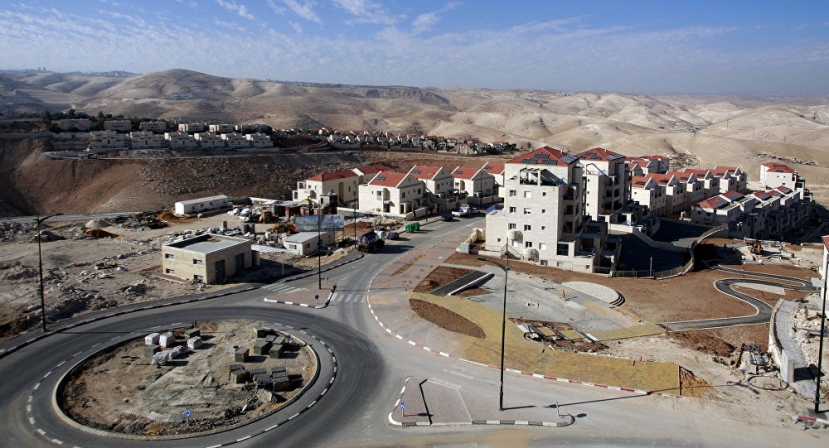Netanyahu Sees Trump Presidency as a Chance to Do Whatever He Wants in Palestine
04.02.2017 18:39
 Netanyahu Sees Trump Presidency as a Chance to Do Whatever He Wants in Palestine
Netanyahu Sees Trump Presidency as a Chance to Do Whatever He Wants in Palestine
Neve Gordon, visiting Professor of Politics at the School of Oriental and African Studies in London, said that Israeli Prime Minister Benjamin Netanyahu sees Donald Trump's presidency as carte blanche for Tel Aviv to act in the occupied territories.
Israel's Prime Minister Benjamin Netanyahu perceives Donald Trump's presidency as a green light for Tel Aviv to do as it pleases in the occupied territories, Neve Gordon, visiting Professor of Politics at the School of Oriental and African Studies in London, told.
The interview came as the Israeli parliament plans to hold a vote on a bill retroactively legalizing about four thousand homes built by Israeli settlers on privately-owned Palestinian land.
It is expected that the bill will be approved by Prime Minister Netanyahu's government.
The announcement of the vote comes in the same week that Israel said it would establish new settlements in the West Bank, the first since the 1990s, to rehouse settlers that were evicted Wednesday from homes they had built on Palestinian land.
In an interview, Neve Gordon said that the new settlements "will not differ substantially" from those sanctioned by the Israeli government.
He said that the situation on the ground is very unlikely to change, even though an Israeli court may rule that Netanyahu's push to build more settlements in the West Bank is illegal.
"I'm not sure we are looking at a major difference except in terms of rhetoric," he said.
Neve Gordon also remained downbeat about the implementation of the two-state solution plan, which refers to the resolution of the Israeli-Palestinian conflict by creating "two states for two groups of people."
The two-state solution envisages an independent State of Palestine alongside the State of Israel, west of the Jordan River.
"First of all, I don't think a two state solution is any longer possible and I think we need to think about the one state and how to take this state which is already in existence," Gordon pointed out.
"The whole discussion about whether this bill [on new settlements] will affect the possibility of the two state solution aims to add to Israel's discussion on the matter," he said, describing the two-state option as nothing but "fantasy."
He also said that Donald Trump's election in the United States gave Netanyahu's government cart blanche to act in the occupied territories.
"On the one hand, there is Trump's victory that is allowing Netanyahu and the Israeli government in general to do whatever they want in the occupied territories. On the other hand, I think other things are being played out, and one of them is a serious investigation in Netanyahu's corruption," Gordon said.
Israel will be building a new settlement in the West Bank amid the dismantling of the Amona outpost, the office of Prime Minister Netanyahu announced earlier this week.
Dealing with the issue will be a special committee that will include Netanyahu's chief of staff, Yoav Horowitz, as well as representatives of the settlement movement and representatives of the Israeli Defense Ministry.
Residents of Amona, one of the largest Israeli outposts in the West Bank, are being evacuated. The new settlement that Israel is planning will be the first government-authorized West Bank settlement to be built in about 25 years.
"For me there is no real difference between an outpost and a settlement because there are both illegal. And Amona is illegal just like the settlements they are going to build," Gordon pointed out.
Russia, along with dozens of other countries including China, India and Brazil, recognizes Palestine as an independent state. The Jerusalem Post reported on February 1 that "Russia’s Foreign Ministry first announced in September 2016 that Netanyahu and [Palestine's President] Abbas had agreed 'in principle' to meet in Moscow," but a date has not been set.
